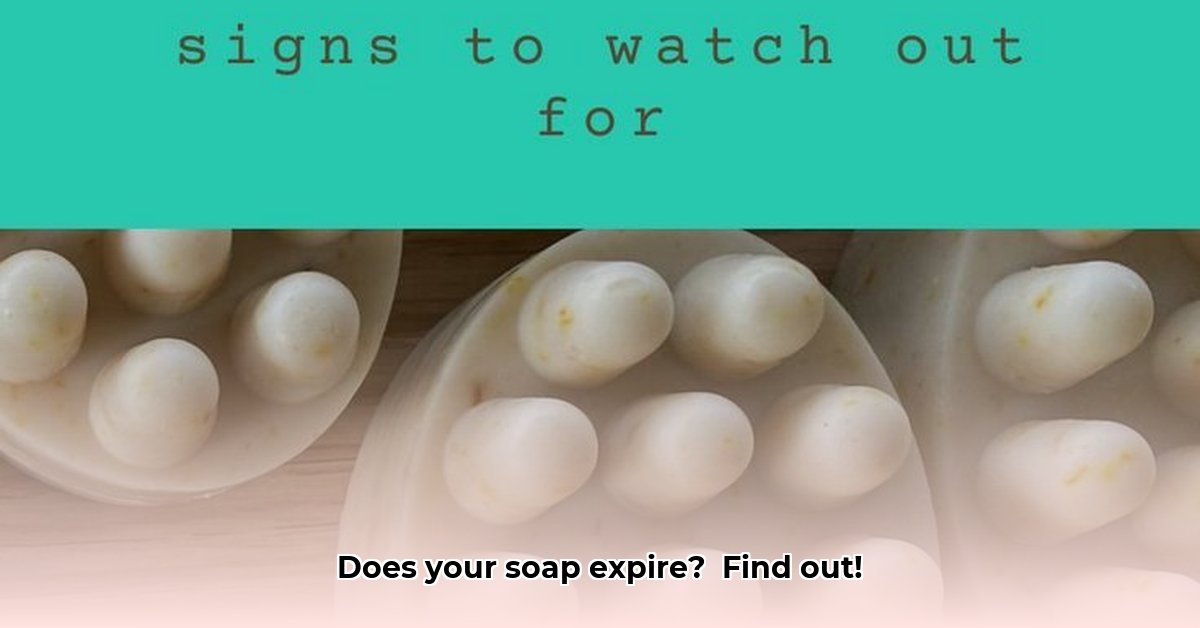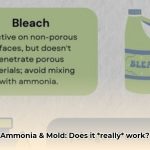Does soap expire? The short answer is: not in the same way food does. While soap doesn’t become unsafe overnight, its quality can degrade, impacting its effectiveness and potentially causing skin irritation. This article explores the shelf life of various soaps, how to spot spoilage, safe storage practices, and answers your questions about using soap past its prime.
Soap’s Shelf Life: A Sudsy Situation
Ever wondered if that old bar of soap lurking in your shower is still good? Unlike milk with its clear expiration date, soap’s lifespan is a bit more nuanced. It doesn’t “expire” and become hazardous, but its cleansing power and pleasant scent can diminish over time. Think of it like bread – while not unsafe after a few days, it’s not as fresh. Similarly, older soap might not clean as effectively or smell as delightful.
Spotting Spoiled Soap: Is It Time to Toss It?
How can you tell if your soap has seen better days? Engage your senses! Look for changes in color – has it faded, darkened, or developed unusual spots? Feel the texture – is it slimy, excessively dry, brittle, or crumbly? Sniff it – does it have a rancid, unpleasant odor? If you spot mold (fuzzy patches of black, brown, green, grey, or white) – it’s game over. Toss it immediately. Mold on soap could irritate your skin or cause other issues.
The Science of Soap Degradation: Why Soap Changes
The primary culprits behind soap degradation are the natural oils often used in soap-making, like coconut, olive, or palm oil. These oils, while excellent for moisturizing and lathering, are susceptible to oxidation and rancidity. Over time, they break down, leading to that tell-tale unpleasant smell and potentially reducing the soap’s cleaning power. Heat and humidity accelerate this process, turning your bathroom into a soap-spoiling haven. Soaps made with synthetic detergents typically last longer because they lack these volatile natural oils. Preservatives can extend the shelf life of both natural and synthetic soaps, but their effectiveness eventually wanes.
Soap Storage 101: Prolonging Your Soap’s Life
Proper storage is key to maximizing your soap’s lifespan. Create a cool, dry, and well-ventilated environment.
- Dry After Use: Allow bar soap to dry completely after each use. A soap dish with drainage is essential.
- Air Circulation: Use a slatted soap dish or soap rack for air circulation. Avoid closed containers, especially in humid environments.
- Seal Liquid Soaps: Ensure liquid soap containers are tightly sealed to prevent evaporation.
- Cool & Dry Storage: Store soap away from heat and humidity. Avoid closed shower caddies.
Is Expired Soap Safe? Potential Risks
Using slightly aged soap probably won’t cause immediate harm, but caution is advisable. Rancid oils may irritate sensitive skin, potentially causing dryness, redness, or itching. Mold growth introduces a risk of skin infections. Why risk it? Replace any soap showing signs of spoilage.
Soap Lifespan: A Quick Guide
| Soap Type | Estimated Shelf Life |
|---|---|
| Commercial Bar Soap | 2-3 years |
| Natural Bar Soap | 1-2 years |
| Liquid Soap | 1-2 years |
| Castile Soap | Up to 3 years (depending on storage & additives) |
| Handmade/Organic Soap | 6-12 months |
These are estimates. Actual shelf life depends on ingredients, storage, and brand.
Soap and Sustainability: Reducing Waste
Reduce soap waste by buying only what you need and storing it correctly. Cut bar soap into smaller pieces for faster drying and longer life. Repurpose slightly used soap for cleaning tasks like scrubbing laundry stains.
Beyond Expiration Dates: Understanding Soap Degradation
Focusing solely on “expiration dates” can be misleading. Understand the factors influencing soap degradation to make informed decisions. By observing signs of spoilage and practicing proper storage, you can ensure your soap remains effective, enjoyable, and safe.
Ongoing Research & Uncertainties
While much is known about soap degradation, research continues. Some scientists suggest factors like light exposure may play a larger role than previously thought. Studies are exploring the long-term effects of using degraded soap, especially on sensitive skin. Current knowledge suggests that slightly aged bar soap likely poses minimal risk, but expired liquid soap carries a higher risk of bacterial contamination and skin irritation due to increased water content and the potential breakdown of preservatives. More research is needed to definitively quantify these risks.
- Does 100% Polyester Shrink? A Complete Guide to Washing & Drying - April 16, 2025
- Elegant Drapery Solutions for Arched Windows: A Complete Guide - April 16, 2025
- The Best Dining Room Tables with Drop Leaves: A Buyer’s Guide - April 16, 2025










